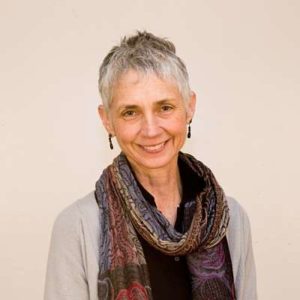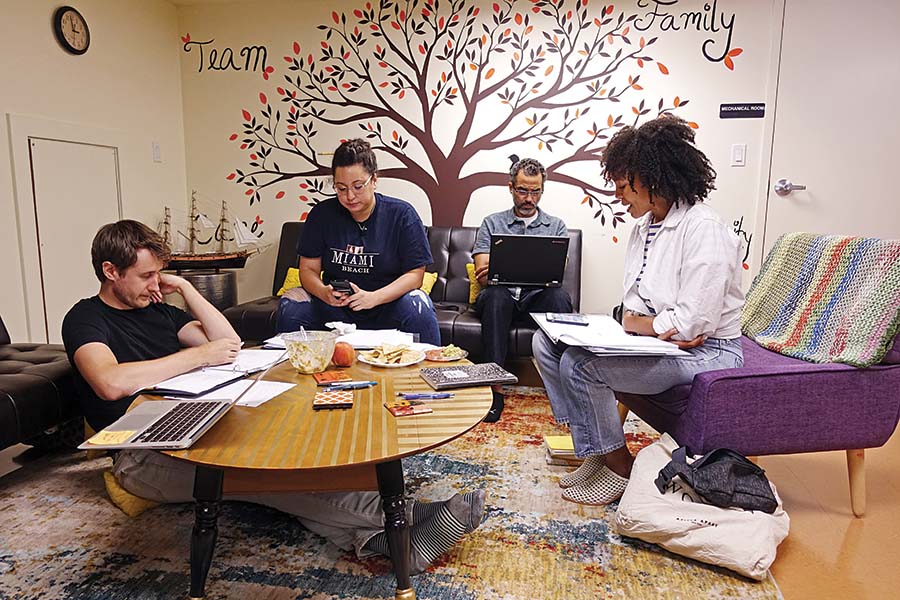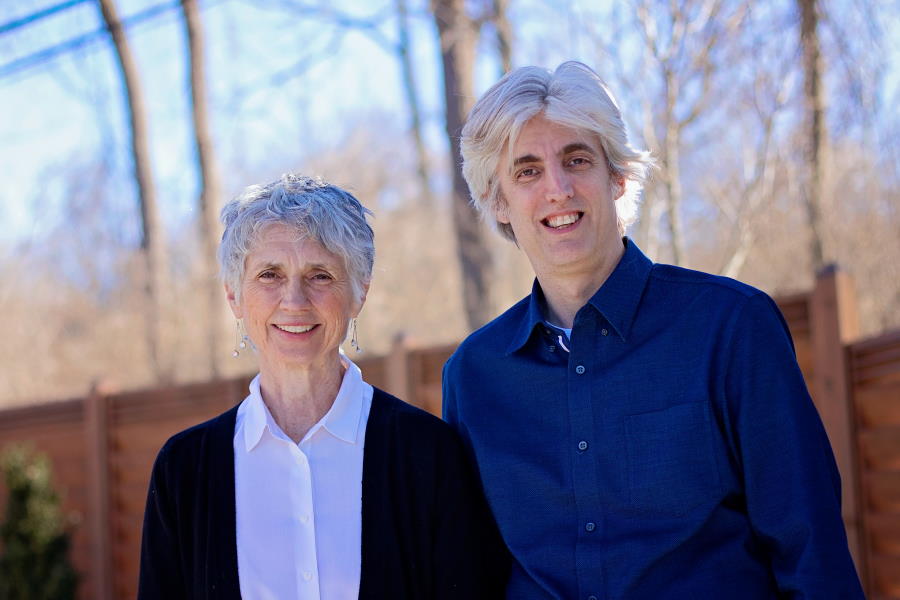MALVERN, PA.: People’s Light has announced that Abigail Adams will step down as the theatre’s executive artistic director in March 2022, transitioning to a new role as the organization’s director of special projects. Adams will also continue to collaborate on productions and serve on the board of trustees. Succeeding her at the helm will be current producing director Zak Berkman, who will become the theatre’s producing artistic director and will lead an expanded leadership team.
“I have the great privilege to recognize and thank Abbey for her years of superlative leadership,” said People’s Light board president Ken Mumma in a statement. “Not only has she overseen one of the most creatively vibrant and expansive periods in the 45-year history of People’s Light, she has laid the foundation for the next 45 years. One of Abbey’s greatest strengths is a disciplined approach to long-term strategic thinking. The securement of this next phase for People’s Light is the direct result of her foresight, intentionality, and comprehensive succession planning.”

Adams, who has been at the theatre for more than 40 years, previously served as the organization’s artistic director since 1997 before being named executive artistic director in 2013. Berkman, who will assume leadership in March 2022, joined People’s Light in 2011 as associate artistic director before being promoted to producing director in 2013. Since then, Berkman has been a key member of the theatre’s season planning and new-work development, establishing the residency and commission program New Play Frontiers as well as the Harmony Lab initiative for music theatre collaborations. Developed work from these programs include Dominique Morisseau’s Mud Row, Colman Domingo and Patricia McGregor’s Lights Out: Nat “King” Cole, and Karen Hartman’s Project Dawn.
The promotion of Berkman to producing artistic director is part of an expansion of artistic leadership at People’s Light. Other changes include the addition of resident director Steve H. Broadnax III, who will join the company in March, as well as another senior artistic position for which the theatre will begin a national search this month. In his new role, Berkman will continue to work with director of finance and operations Erica Ezold and general manager Erin Sheffield.
I spoke to Adams (she/her) and Berkman (he/him) last week about the history of the theatre and their plans for its future.
ROB WEINERT-KENDT: I guess congratulations are in order to you both—Zak for the new position, Abigail for your long and successful tenure. Were you there from the founding of the theatre?
ABIGAIL ADAMS: No, I came a couple of years later, and then I was in and out for a while. But I knew the founders, who were all at Hedgerow Theatre. It’s a long, complicated history.
I don’t want to dwell too much on that, but I’ve always been curious about the name of your company.
ADAMS: Well, People’s Light were people who broke off from the Hedgerow Theater—it was the young people, and the current guard at the time had a disagreement, and the young people lost, so they formed their own theatre. But one of the old guard, Dick Keeler, a lighting designer, sided with the young people; he had a company called People’s Light. He lit productions all over Philadelphia. He was a brilliant artist; he could do amazing things with coffee cans. So when they split off and decided to set up, they didn’t really have a name, so they decided, “We’ll use People’s Light and Theatre Company till we can think of something better.”
It’s a very evocative name; I had no idea it referred to theatrical lighting originally.
ADAMS: People used to ask, “Is it a utility?” We went through waves of thinking about changing it, and then didn’t. About five years ago, we dropped “and Theatre Company,” because we actually do so much more than theatre.
You’re about a half-hour drive from Philadelphia, is that right?
ADAMS: It’s more like 45 minutes now.
Could you talk about your relationship to that theatre market? Are you considered part of the Philly scene, or do you have your own audience?
ADAMS: That’s a complicated question. Sometimes we are and sometimes we aren’t. Zak, you could chime in on this—even after 10 years here, you have the outsider’s perspective.

ZAK BERKMAN: Officially we are part of the Philadelphia theatre community and region in terms of awards categories and how the press covers us. But 85 percent of our audience comes from within a 15-mile radius, which doesn’t include Philadelphia. So in terms of a real audience overlap, there isn’t very much of one. So, for example, when Philadelphia Theatre Company produced Sweat last season, and we also produced Sweat last season, there was no cannibalization of our audiences in that process. That was actually the argument we had to make to Dramatists Play Service. We are the theatre closest to Reading, where the play is set, and we very much wanted to do that premiere, but PTC is considered the larger theatre, so there was a challenge within the publisher about that. We often are having to make the case that we’re not in Philly proper.
But there’s also a talent pool there, right?
BERKMAN: That is where the other overlap is. When I came here 10 years ago, there had already been an expansion within the Philadelphia theatre community, and the resident company of artists here had helped breed what became the Philly acting world later on. So we have both distinctive artists who are part of our company who work predominantly at People’s Light, and there are also a lot of shared artists with the Philadelphia community, as well as national artists.
Zak, you came on in 2011 as an associate artistic director, then soon after became producing director, and Abbey, you then went from the artistic director title to CEO. Was that restructuring in part a succession plan?
ADAMS: From our beginning, we have always put a lot of value in promoting from within; we do it all the time. We only do an outside search when we really feel like we do not have a candidate here. So if that’s going to be successful, you have to strategically be looking at people and developing people way in advance. At the same time—and Zak, you can speak to this—this was not a just handed to Zak. He went through quite a process before it became a done deal. Right?
BERKMAN: Yeah. What I would add is that People’s Light is the only year-round, fully producing professional theatre in Chester County, and we have a really distinct audience base. To be able to sustain the success the theatre has had over 45 years, long-term relationships have been at the center of it in all facets—with artists, with community partners, with administrators. So the mindset in any hiring situation is always, is this someone who will really want to invest in a life at People’s Light? It’s very much people first here, with families with children and dogs running around the campus.
So for someone to decide to work here is a whole life kind of decision. When Abbey and I started talking about my coming here, that involved Abbey meeting with my wife at a coffee shop , and involved us doing multiple trips here to identify whether this was going to be a fit for our family, artistically, civically, socially, the whole thing. You don’t invite someone to come here unless you think that there might be a long-term relationship.
That’s the obvious value of building a strong internal culture. That is often counterposed, though, with the idea of doing an artistic search to find someone with a different background or asethetic, and create a new opportunity for leadership from someone outside your community.
ADAMS: We’re going to do both in this case, and this has been part of the strategic plan over the last few years. Zak, why don’t you speak about the hiring?
BERKMAN: The reason we’re announcing this now, when the actual torch-passing is not until March 2022, is because we will be launching a national search in a couple weeks for an associate position. We have yet to delineate whether this is an associate artistic director or associate producing director, because we really want to cast a wide net and connect with as many different kinds of backgrounds, experiences, and skill sets as possible. This is all part of an expansion of our artistic staff. Steve Broadnax, who we’ve been working with for the past five years on numerous projects as a director and a writer, is joining us officially in March as resident director; this other new position will hopefully come on board September or October—though COVID will obviously be a context for how we put this new senior artistic leadership team together. It’s all part of an evolving design of leadership, of artistic staff really trying to expand the experiences and backgrounds all across the board, in terms of who is steering the vision of the organization, artistically, aesthetically, civically.
Abbey, what are some of the biggest changes you’ve seen in your years running People’s Light?
ADAMS: I would say equity, diversity, and inclusion. This had not just had an effect on the theatre; it is going to transform it. It needs to. There’s a lot to figure out about it. It’s very exciting, and it’s very challenging. If you are living in a predominantly white community, in your mid 60s, and you’re white, and you’re leading a predominantly white institution, your challenges are immense. And they should be.
Zak, you’re younger than Abbey, but have been around the business for a while. What are some the biggest changes or trends you’ve seen in your time at the theatre?
BERKMAN: They have been around the question of empowerment and agency. When I came to People’s Light, it was just after Todd London’s Outrageous Fortune had been published. That was an important reckoning about how undervalued writers have been in our field. It reminded me very much of when I was starting Epic Theatre Ensemble, we met with Zelda Fichandler and asked, “How do you start a company, and what are the things that you would do differently?” One of the things she said is, “When we got on the truck and headed out into the regions, the playwright fell off the back of the truck, and we never turned around to pick them back up.”

When I joined People’s Light, we were in the midst of a strategic plan. We had the opportunity of a grant from Pew, and Abbey asked me if I would create a program to help diversify this organization, to bring new blood to it, but also to help centralize the playwright, because she knows I’m one. That was the initial germ for the New Play Frontiers residency and commissioning program, which has had a pretty seismic effect on our organization. It’s gotten to the point of writers and artists taking initiative in a much more holistic way, in terms of not just their career but their role in civic life, and how the work they are doing is responsive to and representative of a whole diversity of communities and stories. Seeing that and then figuring out how to integrate that into an institutional practice has been a key growth for us. I think that’s incredibly exciting. It also poses a lot of challenges, because the funding sources for these are trailing what the artists are doing. The artists are, as usual, ahead of where the rest of the society is, and our job as institutional leaders is to figure out how to make the places that artists and audiences can meet and have a home together. That’s been the shift that I’ve seen in the last decade.
Can you tell me a little more about Malvern, whose population as of 2010 was around 3,000?
ADAMS: What’s the term that we use now? We’re not suburban, we’re not rural.
BERKMAN: We generally say we are at the intersection of rural, suburban, and exurban. Chester County is the fifth-fastest-growing county in the U.S., and parts of it are deeply wealthy, while parts of it are in massive hunger. It’s microcosm of this country in so many respects. Our audience, like that of many regional theatres, is predominantly white and older. But there’s been a great diversification within Chester County, and so a lot of what our aim has been over the last few years has been, how do we have this theatre that has always been community-minded, and has always been about wanting to represent the community and contribute to the community—what does it mean to now recognize there’s a much different community here? And how can we be more welcoming and more representative of what Chester County is now as opposed to what it was in 1974?
ADAMS: One of the one of the main features of New Play Frontiers is that by having playwrights be inspired by the concerns and history of local communities, those communities become invested in the work that’s made, and over time they see themselves reflected on our stages in a unique way. And because these are major playwrights writing the work, it usually has legs that stand way beyond Malvern. That is a long-term audience development strategy.
What can you say about the theatre’s plans for programming during and after COVID?
ADAMS: Our priority since March has been to keep our staff employed. We’ve done that in many different ways, everything from making masks for local hospitals to turning our restaurant into takeout, to doing car concerts, and now a digital season. Through the fall, we were able to keep 80 percent of our full-time staff. And that’s about 40 people, out of a full-time staff of 50. We’ve now gone down for the winter to about 65 percent, but everybody should be back by March. And for anybody who was furloughed, we have been able to cover health insurance and benefits entirely. That for me was No. 1. But we also have had a filter for our work during this time, which is, except for mask-making, any project that we decide to do, we want it to be something that might also be worth pursuing after COVID. We’ve discovered a lot doing that—a lot of new ideas, a lot of new programs will come out of that. Zak, you can speak to the artistic programming.
BERKMAN: We’re incredibly fortunate and privileged to be on a seven-acre campus, so we’ve been able to do outdoor programming throughout the summer and early fall, and stay connected with audiences. We were doing drive-in concerts, which is not the same as doing a run of a play, and the audience constituencies are a bit different, but we actually found a lot of our audience, whether they were attending or were just aware that we were doing it—it was very meaningful to them to know that People’s Light was still being active creatively. We also had what we call edutainment, family folk tale events, where families can be in very socially distanced pods outside and watch a 35-minute folktale.
We also did a host of digital content, most of it free, from the point when we shut down, and we now have a digital season that is running until May. Then we’ll get back outdoors, in the summer, ideally, building one large and one small amphitheatre outside, so that we can really expand. I mean, we were selling out every drive-in concert, so there was a clear hunger and appetite for safe gathering experiences. And we’ve not had anyone test positive from anything they’ve done here. So we don’t know when we’re gonna open. We sure hope we can open by the holidays next year.
Abbey, this is a sort of exit interview with you, so could I ask you to name some highlights from your time at People’s Light?
ADAMS: Starting the New Voices ensemble as our education program, in 1990; it’s the longest-running program at the theatre. There were certainly several productions—In the Blood, Morning’s at Seven. And most recently, this time last year, The Children, we did, I think, a very good production of that play. I’m a very low-key director; actors are absolutely at the center of the work that I do, and I think I have created a kind of vocabulary and sense of value in terms of what actors do and how they relate to each other that is part of the People’s Light ethos. And then I think, actually, strategic planning—it was a big surprise to me, but I found it so fascinating along the way, and I think that has been incredibly valuable to the organization and rewarding to me.
BERKMAN: I would I just add that Abbey listens deeply as she leads. In the rehearsal room, in the institution as a whole. So what you see on stage are actors who are kinetically listening, physically listening. And I think our staff works that way as well, and our board works that way. We have a culture of curiosity and deep listening that is a legacy of immense worth that goes beyond any single production.
Rob Weinert-Kendt (he/him) is the editor-in-chief of American Theatre. rwkendt@tcg.org


